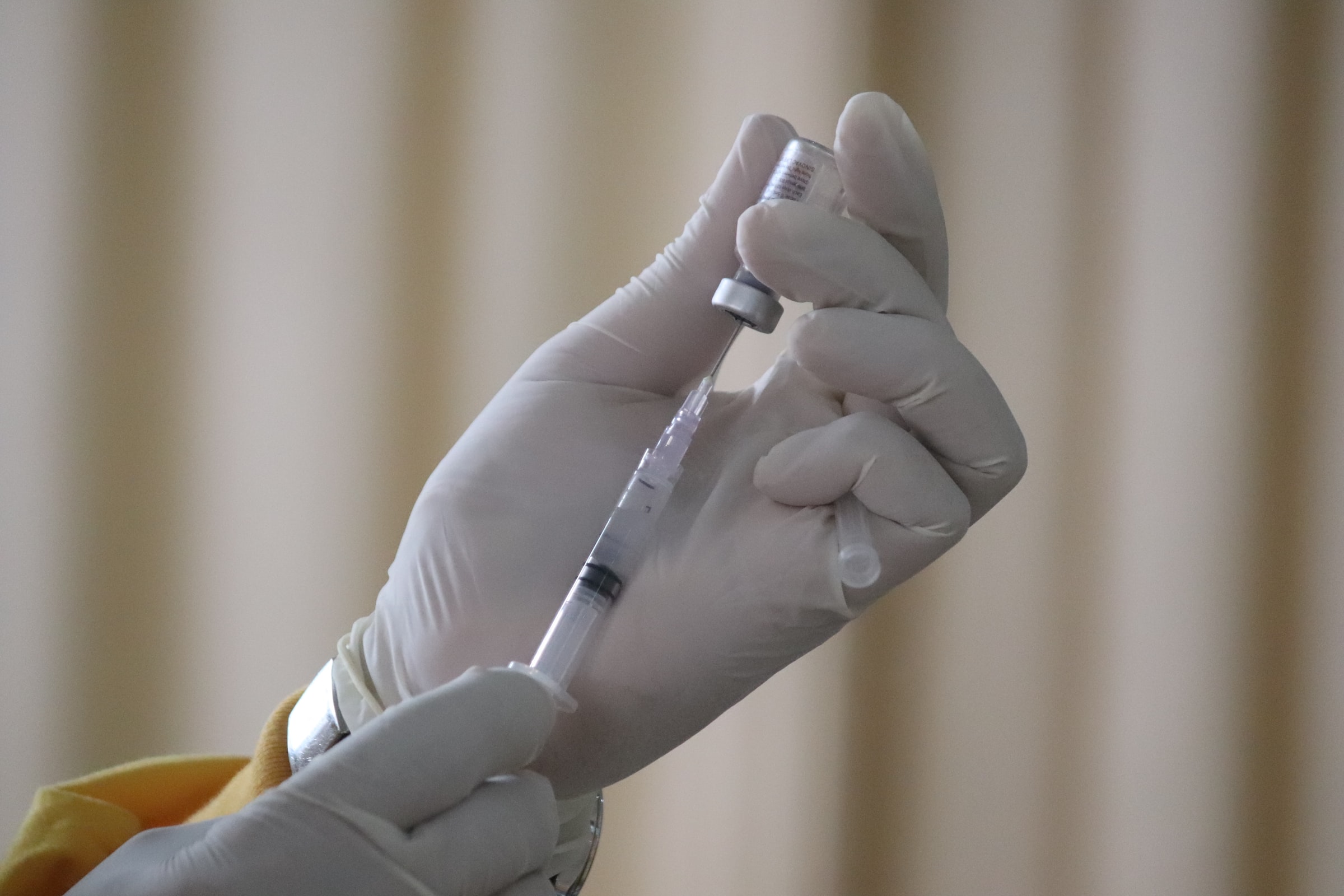Not long after the first detected cases of COVID-19 compelled governments across Europe to introduce swift public health measures, did protests erupt on the streets. While demonstrations in Italy and Spain have largely dissipated, protests in Germany and its german-speaking neighbouring countries of Switzerland and Austria have been particularly irate, still drawing in large crowds. Although demonstrators in the three countries come from varying backgrounds, one common denominator can be identified: the increasing presence of far-right actors attempting to instrumentalize the demonstrations for their own gain.
Following a growing number of COVID-19 cases during the fourth wave of the pandemic last autumn, many EU member states implemented stricter rules to curb the pandemic, including mandatory vaccinations for certain professions as well as lockdowns for the unvaccinated. Although the measures had broad public backing, not everybody joined in on the support, with people pouring onto the streets across Europe. In the Netherlands, protests turned to riots in Rotterdam and The Hague as demonstrators set bikes on fire. In Brussels, protesters clashed with the police at a demonstration against new COVID-19 restrictions and even resorted to vandalising buildings belonging to the European Union. After announcing a new law requiring the nation’s entire workforce to possess government-issued green passes in Italy, protests of up to 10,000 opponents erupted as well, which later on got hijacked by right-wing extremists and turned violent. Akin to Italy, Spain also witnessed attempts by far right actors and populist parties to incite broad vaccine opposition, but these attempts have largely remained unsuccessful.
Although irate vaccine opposition is seen across Europe, a particular group of countries stand out: the DACH countries of Germany (D), Austria (A) and Switzerland (CH), a cluster of wealthy, and predominantly German-speaking countries with notably poor vaccination rates. All three have the largest share of unvaccinated people in Western Europe: while in Germany ‘only’ 75.1% of its population are immunised, the numbers are even lower in Austria and Switzerland with 72.2% and 68.4% respectively. This is especially striking in comparison to countries like Portugal and Spain which reported vaccine rates of 91.4% and 83% in mid-February. While the reasons for the low vaccination rates in the DACH countries are multifaceted, some can be identified. According to Suzanne Suggs, a professor of communication at the University of Lugano, German-speaking countries have been characterised by a more dispassionate health messaging, emphasising functionality over emotional appeals, which gives conspiracy theorists the opportunity to fill the void with emotional anti-vaccine messages. The vaccine retency in the DACH-countries can also be linked to the strong support of homoeopathy and natural cures among the population, as well as a tradition of distrusting rules imposed from the capital in the decentralised states. But most notably, the vaccine resistance is spurred on by the far-right which exploits and instrumentalizes these already existing attitudes.
In Austria, more than 40,000 protesters took to the streets in one of the largest political protests in years after the government announced a vaccine mandate in November. Among the demonstrators: members of the far-right ‘Identitarian Movement’ as well as the far-right ‘Freedom Party of Austria’ (FPÖ), who openly supported the rallies and warned of an imminent ‘dictatorship’. Apart from anti-democratic sentiments, the protest was utilized by the far right to spread antisemitism and glorify the holocaust. This was evident as multiple demonstrators wore the yellow star – that Jews were forced to wear during the NS-era – claiming they are the ‘new Jews’, tormented and discriminated against by the state planning a ‘genocide’. In Switzerland, the far-right is increasingly attempting to use protests to promote their own political views, following the successful example of extremist groups in Austria and Germany.
Although both Switzerland and Austria are notable in their vaccine opposition, the German case deserves special attention, given that Germany has the largest share of unvaccinated people among the big Western European nations and has a pronounced organised resistance to vaccines more than anywhere else in Europe. While Germany was hailed for its high trust in government at the beginning of the pandemic, more and more Germans have become dissatisfied with the government’s handling of the crisis, in stark contrast to other nations like Spain and France, where support for government policies steadily increased. Recently, the country has been shocked by nationwide protests after the new chancellor Olaf Scholz announced plans to make vaccines mandatory. Week after week, protesters convene in hundreds of spontaneously arranged, decentralised evening ‘walks’ aimed at overwhelming the police by stretching the security forces thin. In the third week of January alone, Germany saw 1,700 countrywide protests, drawing in around 400,000 people.
Whilst 71% of Germans support not just vaccines but also vaccine mandates, those opposing both have allied themselves with the far-right. Although the protesters are composed of a mix of people ranging from hippies, esoterics and the politically disillusioned to hooligans and neo-Nazis, they all have one thing in common: the distrust in ‘mainstream science’ and ‘mainstream politics’. Yet, one distinction has to be made: while in the southwest of Germany, protests have their roots in the left-wing movement, demonstrators are often aligned with the right-wing party ‘Alternative for Germany’ (AfD) in the east of Germany. Most notable is the situation in the eastern state of Saxony, where only 63.7% are fully immunised, compared to a nationwide 75.1%. The state has become the epicentre of an irate vaccine opposition movement, with as many as 200 ‘strolls’ each Monday. The imagery and advertisement of protests as ‘strolls’ is intended, meant to invoke nostalgia, a tie to the peaceful Monday demonstrations by pro-democracy protesters that happened in the former communist East Germany. In Saxony, where distrust of the state, globalisation and mainstream media is traditionally high, far-right extremists have been particularly successful in gaining ground and mobilising vaccine sceptics. The recently founded right-wing extremist group ‘Free Saxons’ is at the heart of the protests, supported by some members of the established neo-Nazi party ‘Third Way’, who openly propagate antisemitic hatespeech next to anti-vaccine and anti-restriction messages.
‘Free Saxons’ were furthermore behind a ‘protest’ where some 30 people gathered in front of the private home of the health minister of Saxony, carrying torches. Just days later, investigations were picked up into an alleged plot to assassinate the state’s Prime Minister Michael Kretschmer over his role in tightened coronavirus measures. These incidents point to a large problem of German society: the increasing aggression of protest movements, driven by right-wing extremists. This radicalization reached its sad climax in Idar Oberstein in September 2021 where a 20-year old gas station attendant was fatally shot in the head by a customer after repeatedly making him aware of the mask mandate.
For the last two years, protesters against COVID-19 measures have been omnipresent all over Europe. Yet, not all demonstrations have been alike, with protests in the DACH-countries especially consistent, increasingly radicalised by the radical right who shares a distrust in politics with anti-vaxxers. This constitutes a threat for democracy for a number of reasons: by allying with vaccine sceptics, the far-right shows presence on the streets, normalising contact with right-wing extremism for those partaking in the demonstrations. This development is especially worrying as the far-right systematically spreads narratives of conspiracy and hate speech, thereby attempting to use the pandemic to push public distrust in government to bring about system collapse. Although pandemic-related restrictions might wail soon, the far-right will want to utilise their newly forged connections, mobilising against inflation or the next wave of migration. As one high-ranking AfD politician said : ‘We will be back’. This can only be of concern to all of us.

Kathina Mehring
Kathina Mehring does her Master in European Studies at the University of Gothenburg and is passionate about politics and feminism. Staff writer at Utblick since September 2021.



